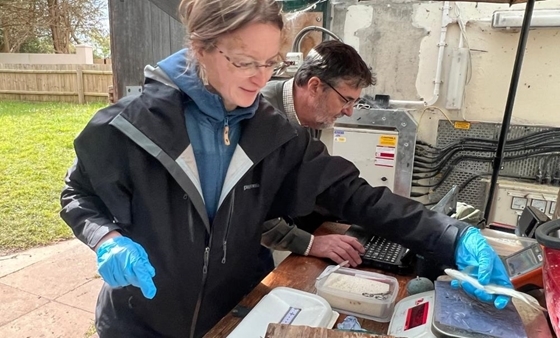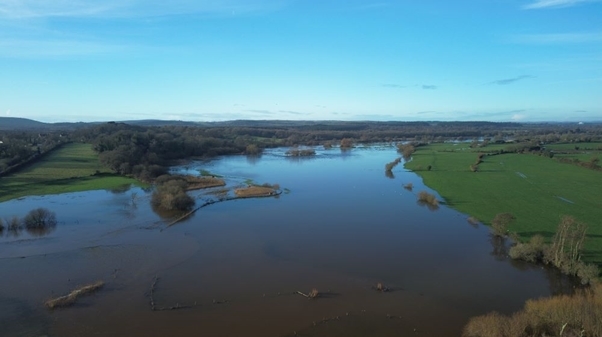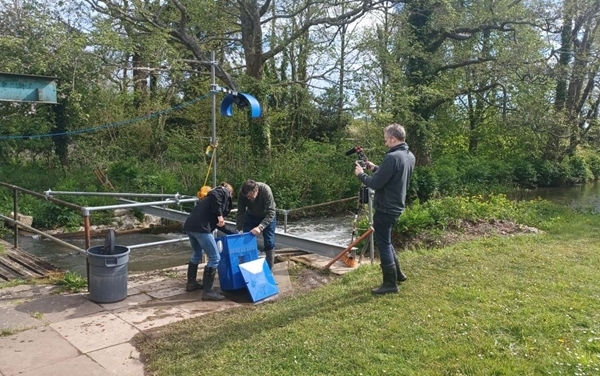
By Dr Sophie Elliott, Fish Scientist
It has been a challenging season for the fish research team here at East Stoke in Dorset. The exceptionally high rainfall has led to extremely high river levels, making it impossible for us to carry out much of our field work and shortening other parts, which affects population estimates.

The salmon redd counts (counting salmon nests via a drone) that were due to take place in January, had to be abandoned due to flooded banks and poor water visibility, and the annual smolt monitoring was delayed by a month, leading to missing most of the sea trout migration.
Further, a breach in the bank between the river Frome and the mill stream, where our smolt trap and processing lab are located, added to this delay and this must still be repaired for accurate population estimates to be made. This is of particular importance given the river Frome is an ‘index river’ for which population estimates feeds into national and international population assessments.
We have a busy spring and summer in front of us, but also an exciting European eel (IUCN red listed as Critically Endangered) tagging project to look forward to.

BBC coverage
Once we did manage to get the smolt trap up and running at the end of April, we were able to show BBC reporter James Ingham how the monitoring is carried out here on the mill stream. In his report on South Today he highlighted the steep decline in Wild Atlantic salmon and how the work we do plays a vital role in understanding what is happening and why.
Read the BBC News article - Dorset salmon study: Conservationists work day and night at River Frome
You can also listen to Bill Beaumont talking to Lucy Ambache on BBC Radio Solent’s afternoon show. Starts at 3h 23m 15s.